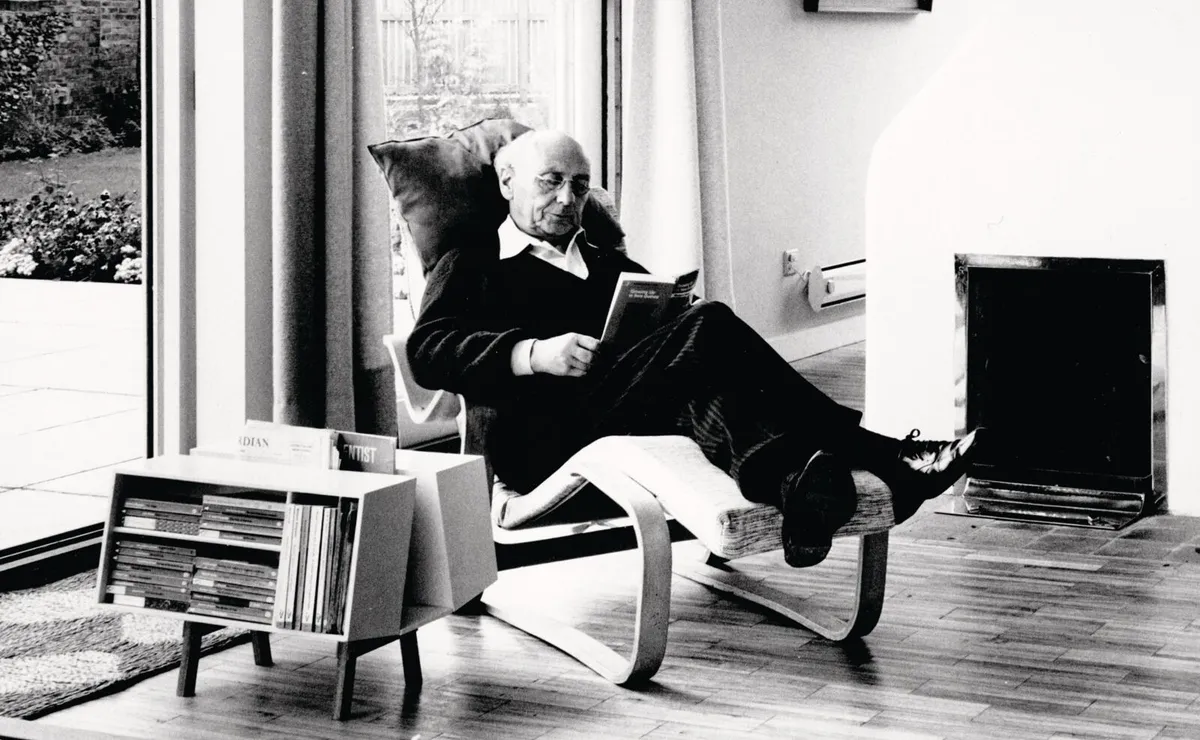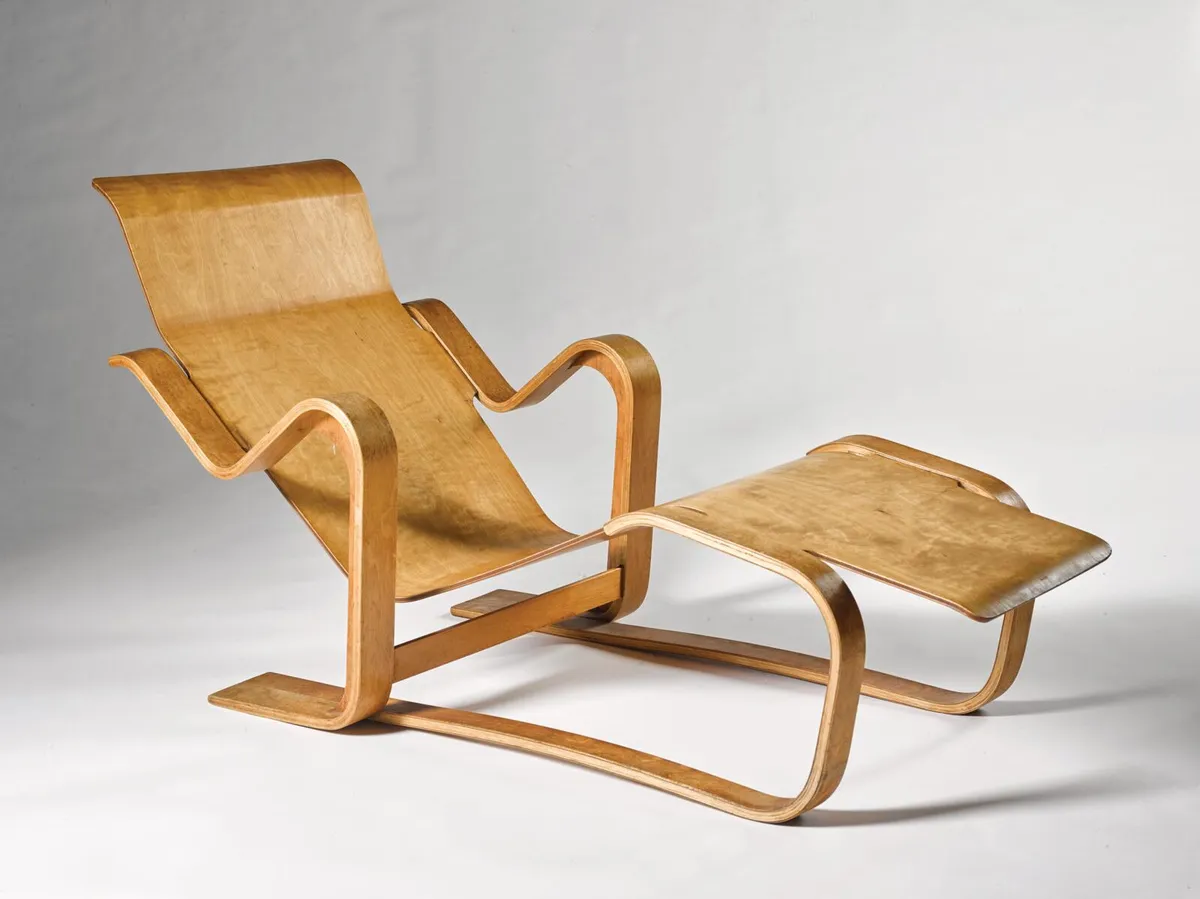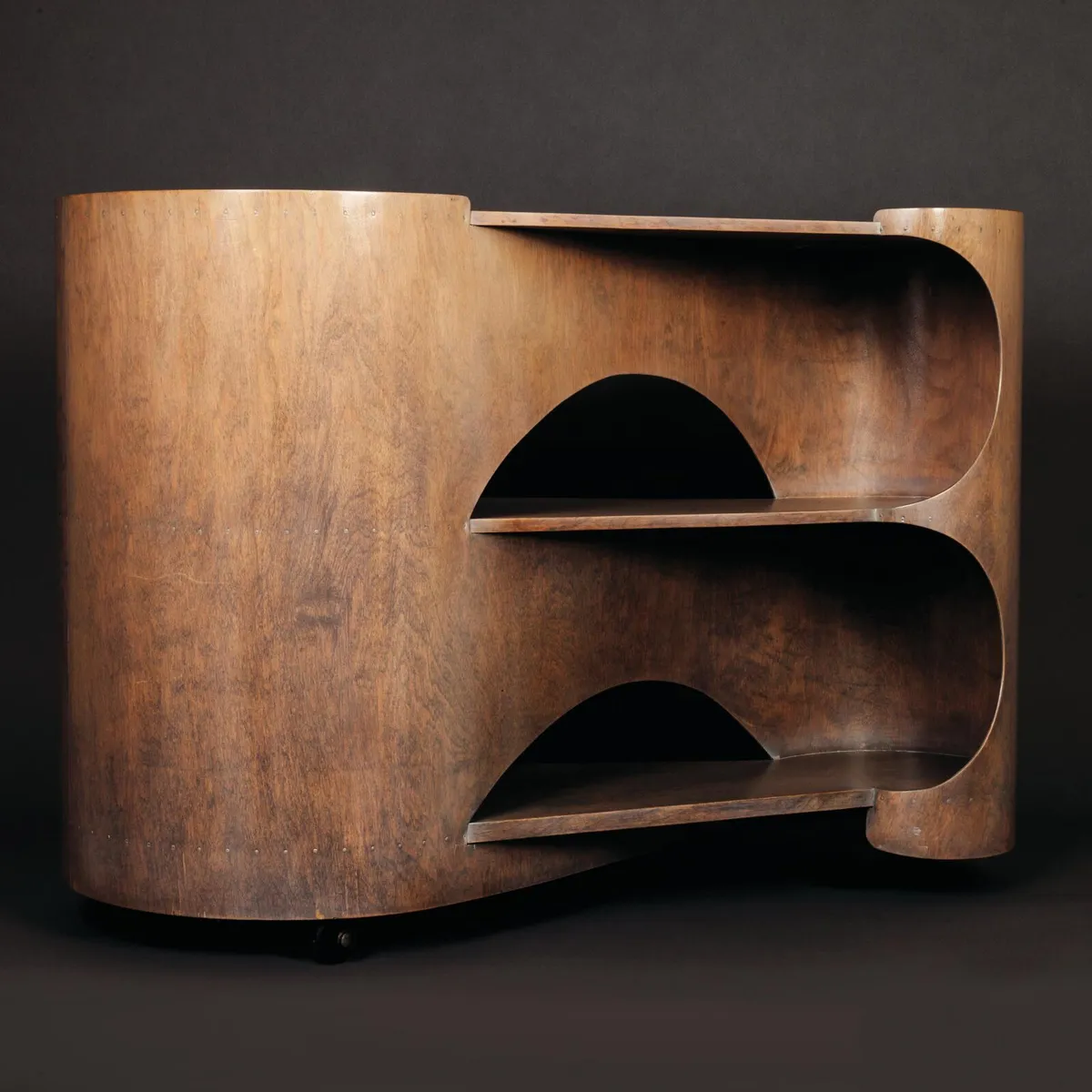The Isokon derives its name from the design company established by Jack Pritchard, the visionary developer behind the building. While working for Venesta, an importer of plywood from the Baltics, Jack spotted the potential of this durable, flexible material – his enthusiasm earned him the moniker Plywood Pritchard.

The Bauhaus Connection
‘During the 1930s, Jack housed members of the Bauhaus, who were escaping persecution in Nazi Germany, in the Isokon,’ says Magnus Englund. ‘And their arrival inspired Pritchard to form the Isokon Furniture Company.’ Walter Gropius was appointed Controller of Design, Marcel Breuer was designer and László Moholy-Nagy was in charge of the marketing material. Furniture from this era is sought after for its patina and rarity – in 2017, a 1935-36 Breuer Isokon Long Chair, made from prefabricated bent plywood, sold for £7,500 at Sotheby’s.

Pritchard also recruited fellow ply enthusiast Gerald Summers, who produced an undulating trolley that was exhibited at the ‘Bent Wood and Metal Furniture’ exhibition in the USA. This rare Isokon trolley (above), one of only two known examples in the world, is currently for sale at specialist dealer Peter Petrou, priced at £65,000.

If you're interested in furniture, check out our round-up of the best furniture upcycling and restoration courses available online and in person.
Bottleships & Donkeys
In 1939 the Austrian émigré architect Egon Riss began work on some of the company’s most playful designs, including a wall-mounted Bottleship for storing bottles and glasses and the Donkey, which was perfect for the recently launched Penguin paperbacks. ‘The outbreak of the Second World War halted production and the pre-war Riss pieces only ever made it to prototype stage so they are very rare,’ says Magnus. The business was revived in 1963 and Ernest Race produced a new version of the Donkey. Designs from this era are far more affordable – in 2014, for example, a pair of Race’s Donkeys sold for £875 at Lyon & Turnbull auctioneers.
Isokon Today
In 1980, Chris McCourt, son-in-law of the Festival of Britain architect John Morton, gained the licence to manufacture Isokon designs. Reissues include furniture designed for the Isokon restaurant and Race’s Donkey Mark 2 (£595). ‘Early reissues from the 1980s are also becoming increasingly sought after,’ says Magnus. The company, now known as Isokon Plus, continues to collaborate with leading lights in design, such as Barber & Osgerby, whose 1996 Loop coffee table is already a design classic.